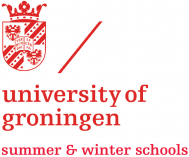5 July 2024
on course website
Polarisation: Transdisciplinary Approaches to Societal Polarisation
blended courseAround the world, political and societal discourse is suffering from an increasingly polarised public sphere. Polarisation occurs when the ‘middle’ is lost, and society divides into largely separate and non-interacting groups, with no sense of common ground and loss of mutual understanding and cooperation. Polarisation dynamics play out within specific ‘issues’ (think of climate change, vaccination policies, social justice topics), as well as more generally in the public sphere, with distrust, lack of interaction, and distaste, anger or even loathing resulting between members of opposing ‘camps’.
The polarisation of the public sphere diminishes the space for constructive and collaborative processes, and in this way it undermines democracy, as well as our ability to collectively address the enormous challenges of our time, such as the climate crisis and societal inequality. There is thus an urgent need to understand the dynamics of polarisation and how they play out in our societies, so that we can work to counteract them.
In this summer school students will have the opportunity to work together with researchers from the University of Groningen and Stellenbosch University, in the disciplines of (social) psychology, philosophy, political science, sociology, and other relevant disciplines, in an innovative hybrid and transdisciplinary programme addressing polarisation from multiple perspectives. Students will learn about and engage with current debates and emerging research insights which address and analyse our polarised times, and will work together in mixed groups (both in terms of discipline and country of study) on developing an intervention to mitigate against processes of polarisation in a specific context, brought in as a challenge by external societal partners.
Please note that there will be online sessions before and after the summer school.
Course leader
Marian Counihan, UCG
Alette Arendshorst, GMW
Target group
The summer school is offered to advanced bachelor and masters students at both the University of Groningen and Stellenbosch University, and taught by staff from both universities. It will also be open to external students and PhD students if numbers allow. In this way, both students and staff will learn about topical polarisation dynamics in other country contexts in the global South / North, and gain valuable additional perspectives on their own contexts.
Required background knowledge
The course is designed for advanced bachelor / honours / master students with backgrounds in relevant disciplines from the social sciences or humanities including (social) psychology, philosophy, political science, sociology, linguistics, history, law etc.
It is expected that the participants have a sufficient command of the English language to actively participate in the discussions and to present their own work in English.
Course aim
Upon completion of this summer school, students will gain the following.
Knowledge
Students will be able to:
- Articulate definitions of polarisation.
- Understand different indicators for polarisation, as described by different fields of research (e.g., affective polarisation, network homogeneity, etc).
- Describe the key factors and processes that contribute to societal polarisation.
Skills
Students will be able to:
- Analyse polarisation through different lenses (social psychological, philosophical, sociological, linguistic).
- Critically evaluate interventions aimed at reducing polarisation.
- Integrate different perspectives on polarisation, and apply them to a specific case.
- Develop practical advice to reduce polarisation in an applied context.
- Communicate this advice to policy partners in a report and/or presentation.
Values
Students will be able to:
- Be aware of the different forms polarisation may take in different societal contexts in the global North and global South (with a specific focus on the NL and SA).
- Understand, respect, and reflect on the diversity of perspective of students from different societal contexts and disciplines.
- Understand and reflect on the experiences of people living in a highly polarised context, and how this may alter their cognitions, emotions, and behavior.
Credits info
5 EC
Preparatory reading and assignment: 40hrs.
Summer school week: 50hrs. (25 contact hours)
Group project: 50hrs.
Upon successful completion of the programme, the Summer School offers a Certificate of Attendance that mentions the workload of 140 hours (28 hours corresponds to 1 ECTS). Students can apply for recognition of these credits to the relevant authorities in their home institutions, therefore the final decision on awarding credits is at the discretion of their home institutions. We will be happy to provide any necessary information that might be requested in addition to the certificate of attendance.
Fee info
EUR 100: for students of University of Groningen, Stellenbosch University and ENLIGHT, possibility of a waiver.
Travel and accommodation are not included in the above fees and are at the participants' own expenses.
EUR 250: for PhD students and students from external universities.
on course website

